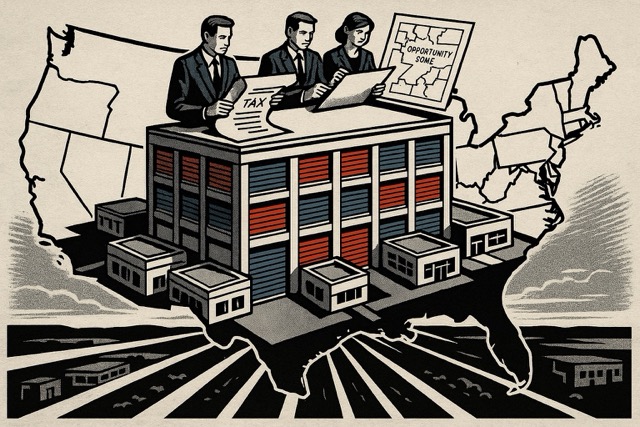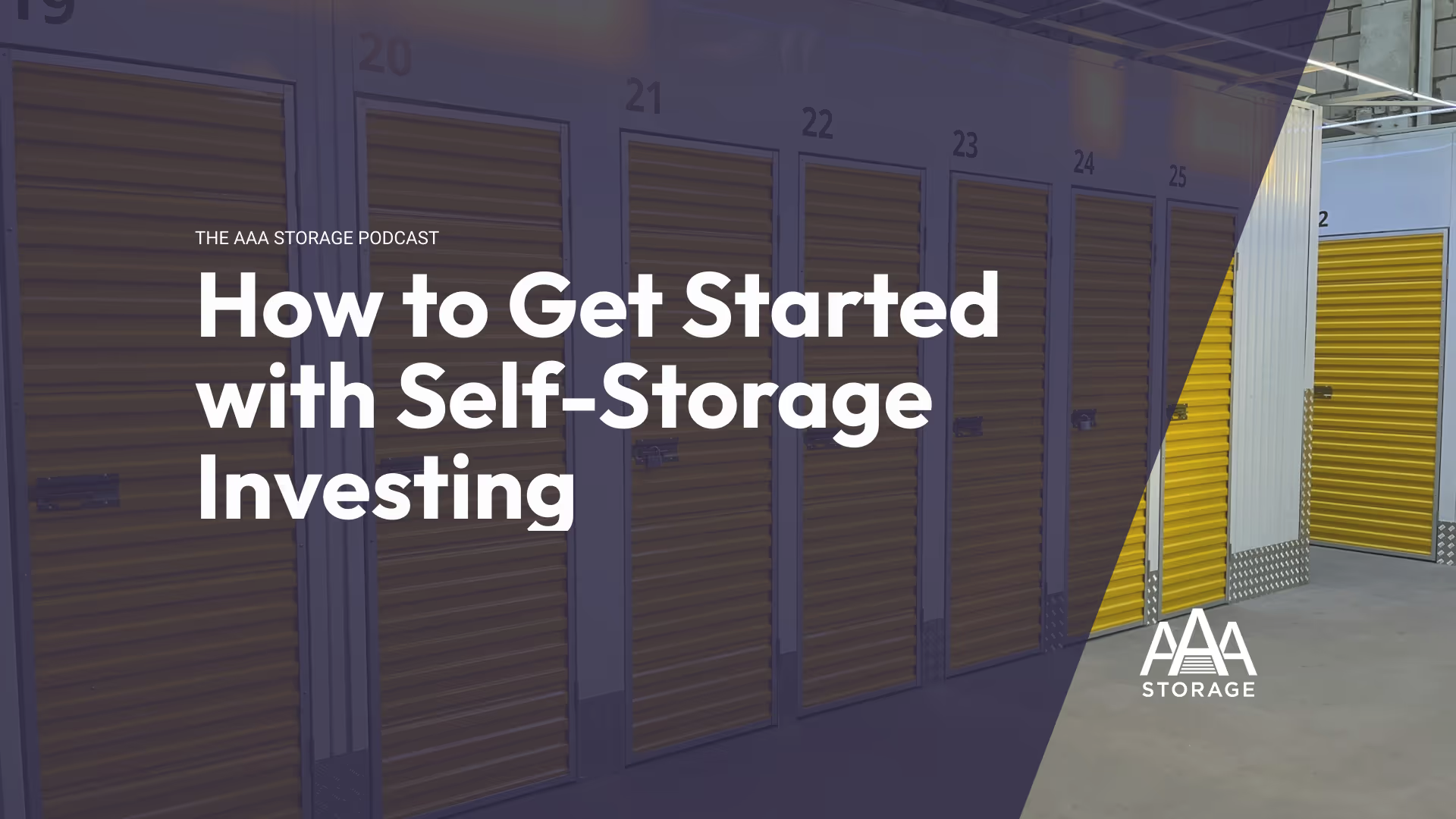The H.R.1 "One Big Beautiful Bill Act" Reshapes Tax Opportunity for Self-Storage Investors

New Tax Rules: What’s Changed and Who Benefits
H.R.1, known as the "One Big Beautiful Bill Act," brings targeted tax updates for commercial real estate investors, particularly those in self-storage. While the bill addresses a range of tax issues, a few specific provisions shape current investment logic for sponsors and passive partners alike.
First, H.R.1 expands the cap on deductible state and local taxes. This matters most to those with direct holdings in high-tax states. The mortgage interest deduction is preserved, offering continued predictability for investors with personal real estate and commercial portfolios. The 1031 exchange—central to property upgrading and portfolio rebalancing—remains unaltered. Investors can still defer capital gains taxes by reinvesting proceeds from real estate sales into new like-kind property, a key stability for disciplined growth and legacy planning.
Opportunity Zone programs have become notably more attractive. The provisions are extended and expanded, adding new locations and extending the possible duration for benefits. Qualified investors can defer tax on eligible gains rolled into these designated zones, with the clearest advantage going to those with time and patience: if you hold a qualified Opportunity Zone investment for over ten years, you may be eligible to fully eliminate capital gains taxes on appreciated value. This zero-capital-gains exit remains a compelling, long-term tool in strategic planning and generational wealth transfer.
The other major policy headline is negative for some: tax credits for solar panels on storage facilities have been eliminated. For storage sponsors and operators, the removal of solar credits removes much of the direct investor benefit that powered prior years’ projects. Adding solar now only improves facility operations or utility costs; it no longer carries a tax-driven return. Operators with deep project-level experience can still analyze unique local incentives, but as a national platform, the federal business case for storage solar is now minimal.
QBI Deduction Expansion and Safe Harbor Rules for Passive Investors
The Qualified Business Income (QBI) deduction is one of H.R.1’s most pragmatic wins for investors in real estate partnerships. The deduction increases from 20% to 23%, allowing qualified owners to reduce taxable income attributed to their K-1 distributions. For example, if your share of K-1 income from a self-storage partnership is $10,000, the revised law generates a $2,300 deduction, directly reducing your taxable base.
There are targeted limits. The QBI deduction begins to phase out for single filers above $191,000 and for couples filing jointly above $383,000. For those breaching these earnings thresholds, the allowable deduction is limited further, using specific calculations involving unadjusted basis of underlying partnership property.
Passive investors have historically overlooked the QBI deduction or misunderstood eligibility. H.R.1 addresses this with strengthened safe harbor provisions explicitly allowing qualifying passive partners to utilize the deduction, provided the operating sponsor or property manager meets three requirements:
At least 250 hours of service (per property/group) annually, performed by sponsor or manager.
Separate books and records maintained for each property.
Written documentation, updated yearly, tracking hours performed and service providers.
AAA Storage’s vertically integrated platform not only meets these safe harbor standards, it streamlines reporting for investors. Each partner receives thorough K-1 documentation confirming compliance with all requirements. For many passive owners, these annual deductions compound over time, improving long-term net returns.
100% Bonus Depreciation: Immediate Passive Losses and Strategic Deferral
H.R.1’s reinstatement of 100% bonus depreciation is a central point for real estate investors. This benefit applies on eligible property purchased after January 19, 2025, and placed in service by Jan 1, 2030. For “qualified production properties”—such as industrial assets—the placed-in-service deadline extends to January 1, 2031.
The material advantage for self-storage investors is the large, immediate passive loss in a project’s opening year. In a typical $10 million development, around 60% of costs—or $6 million—may be depreciable up front. With a 2% fund allocation ($200,000 invested), an investor would receive $120,000 in first-year passive losses on their K-1. These can offset passive income from other investments, and unused losses carry forward—“banked”—indefinitely until new passive gains are produced.
It is critical to remember that these deductions are a tax deferral, not a permanent exemption. At property sale, depreciation is recaptured, typically at ordinary income rates. Still, the benefit of deferring taxes—sometimes over multiple years—improves immediate cash flow, enhances reinvestment opportunities, and increases financial flexibility.
How H.R.1 Redefines the Self-Storage Investment Landscape
For disciplined self-storage investors, the "One Big Beautiful Bill Act" delivers a suite of updated tools for maximizing after-tax returns. There are stronger annual deductions (QBI), larger upfront passive losses (bonus depreciation), and expanded, longer-term tax elimination possibilities in Opportunity Zones. While the elimination of solar tax credits for storage assets steers energy discussions away from tax-driven calculations, the core business model benefits remain undisturbed. As always, investors should coordinate with their CPA to leverage these updates fully and align their holdings with a platform that prioritizes compliance, transparency, and expertise, and to check for any updates since the publication of this article. AAA Storage remains committed to deploying all available advantages to drive consistent, superior results for every investor.
Find more expertise.
Stay updated with our newsletter.
Subscribe now for the latest news, tips, and exclusive content delivered straight to your inbox.











